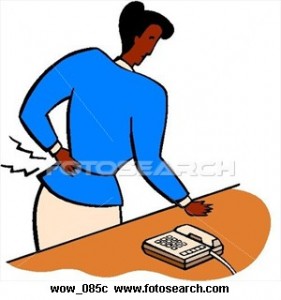When we knew that our patient did not carry twins, instead had uterine myoma, I did some research about it. Actually, that patient did not come back for her prenatal check-ups. If she did, that abnormalities was detected through ultrasound. These are some info of Uterine Myoma.
Uterine myomas also called “fibroids” are tumors that grow from the wall of the uterus. The wall of the uterus is made of muscle tissue, so a fibroid is a tumor made of muscle tissue. The fibroids start off very small, actually from one cell, and generally grow slowly over years before they cause any problems. Most fibroids are benign; malignant fibroids are rare. The cause of fibroids is unknown, although it is known that fibroids have a tendency to run in families.
The most common symptoms are:
• Cramping with periods.
• Heavy flow or clots with periods.
• Discomfort, such as pressure, as well as being unable to lie on your stomach and being unable to button your clothing easily, caused by the mass of the fibroids. Other, less common symptoms include irregular bleeding and urinary frequency caused by the pressure on the bladder from the fibroids. If your periods are very heavy, you may become anemic and an iron supplement may be recommended.
If fibroids become symptomatic enough, they can be removed surgically. The most common surgical approach is to perform an “abdominal myomectomy. An incision is made in the lower abdomen into the abdominal cavity, and the fibroids are removed from the uterus and the uterus stitched closed. If the uterus is no longer necessary (the woman is finished having her family) and the woman desires her uterus removed, a hysterectomy (removal of the uterus) can be performed. (A “hysterectomy” is removal of the uterus and cervix, not removal of the ovaries.
 Merry Christmas everyone!! I hope everyone is having a wonderful time their family and friends. We have a marvelous time with our family because all of the members of the family are present. Christmas is a great way to ponder that Jesus our savior was born which the the reason for the season.
Merry Christmas everyone!! I hope everyone is having a wonderful time their family and friends. We have a marvelous time with our family because all of the members of the family are present. Christmas is a great way to ponder that Jesus our savior was born which the the reason for the season. Most of us experiences back pains. It is not fun to have them. Delivering babies sometimes made my back hurts. So we need to baby our back and give them a break.
Most of us experiences back pains. It is not fun to have them. Delivering babies sometimes made my back hurts. So we need to baby our back and give them a break.